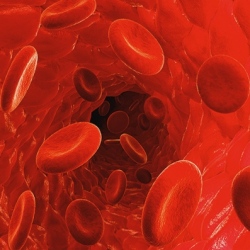
The Food and Drug Administration approved the first of a new class of cholesterol-lowering drugs called proprotein convertase subtilisin kexin type 9, or PCSK9, inhibitors, to treat people who have a genetic, hard-to-treat form of high cholesterol or have specific types of heart disease.
The injectible drug, called Praluent, has raised eyebrows because it costs about $14,000 a year per patient, but researchers have called it a breakthrough because of its ability to reduce cholesterol levels. Statin drugs were introduced in the 1990s and are widely used to lower cholesterol, however they’re less effective in some patients and others can’t take them at all.
"Praluent provides another treatment option for patients with HeFH or with known cardiovascular disease who have not been able to lower their LDL cholesterol enough on statins," said Dr. John Jenkins, director of the Office of New Drugs, Center for Drug Evaluation and Research in the FDA, in a press release.
PCSK9 inhibitors target a protein that effects the liver’s ability to remove LDL cholesterol from the blood. A study with 2,476 people at risk for stroke or heart attack and taking the highest dose of statins their bodies could tolerate, saw an average drop in LDL cholesterol between 36 and 59 percent from the drug.
"The clinical studies we’ve done to date really have shown exactly what we’ve hoped for, which is a truly unprecedented ability to lower LDL cholesterol," Jay Edelberg, head of the PCSK9 development unit at Sanofi, told the Washington Post. "The ability to lower LDL for these high-risk patients is incredibly important."
In addition to Praluent being an injectible, the cost of the drug has been an issue throughout its FDA review. Sanofi, which makes the drug, said in a press release it plans to charge about $40 per day for it, ten times the daily cost of generic stains, which works out to more than $14,000 per year.
